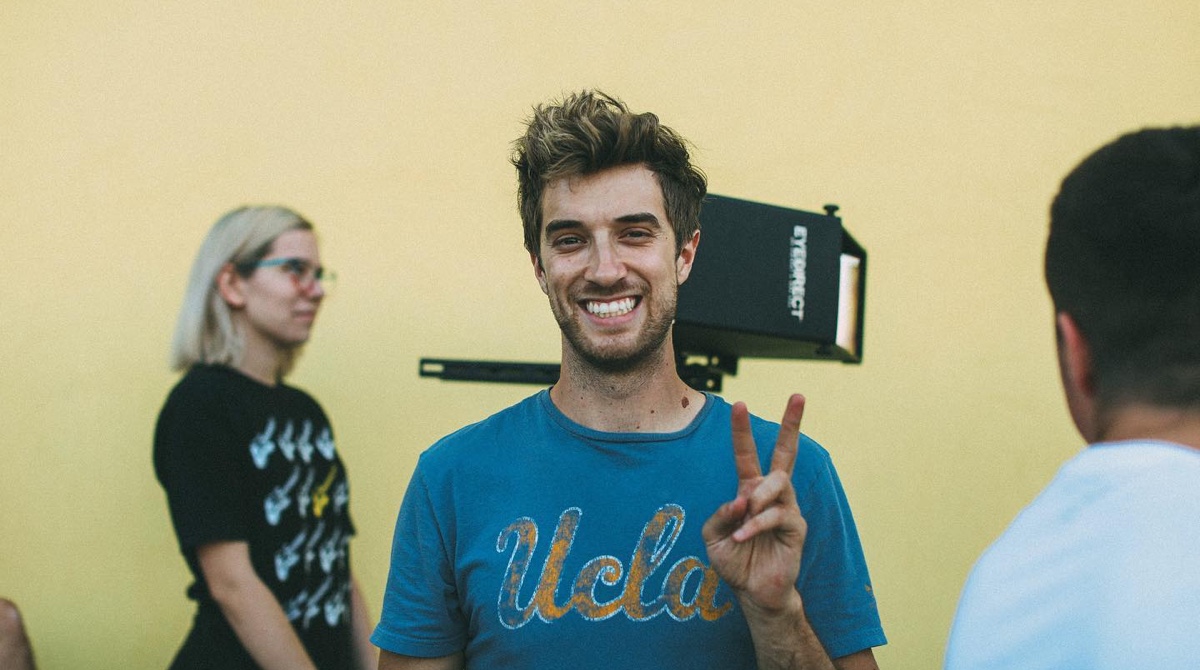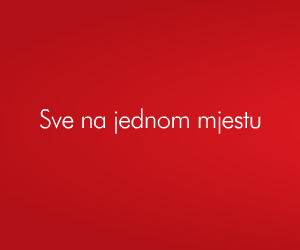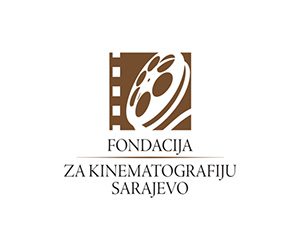
26/08/2021
They have built a school in Široki Brijeg like you cannot find anywhere in the world
It all started on his family’s onion farm in Quincy (USA) for Webby Award-Winning Documentary Director Luke Grigg. Luke discovered his passion for storytelling and cross-cultural understanding in high school when he lived in Lima, Peru, which changed this athlete and tractor driver's life forever. His journey in filmmaking led him to create stories with communities rather than just in them from places such as Kenya, Peru, Australia, Mexico, Canada, the U.S. and to Bosnia and Herzegovina. Together with his colleague filmmakers, he has been a part of the professional team of the MFF School film workshop for the past few years, and this year he is also a member of the jury at the 22 Mediterranean Film Festival. I was an athlete and tractor driver all growing up as the arts were never something emphasized in our small town. My last year of high school I became an ambassador for the U.S. as an exchange student to Peru and it changed my life forever. While on exchange, my grandmother (who moved to the U.S. from Morocco when she was 18) decided to finally open up about her past having escaped the war as a Moroccan Jew. She revealed to my family that we were indeed not Christian but Jewish and that we had over 109 relatives living in Israel. It was a shock to learn that I too had a story worth exploring. So, I moved to Israel to build a relationship with our long-lost relatives. Filmmaking just naturally became a tool through which I could document all of this new information I was learning. I applied to UCLA Film School and the rest, as they say, was history. And finally I launched production company - Circle 3 Productions in 2017.
You like travelling, people and their stories?
Being able to travel around the globe to come alongside communities to tell their stories is a blessing too big for words. I know that this type of work is what I was made to do because I love people and their stories. I love building bridges between cultures. From Peru, to Kenya, Australia, to Mexico, Croatia, Bosnia & Herzegovina and more… There is no greater joy I receive than sitting down with someone at their dinner table, learning about our differences in culture, and then diving into ways that we can share those differences or similarities with the world through film!
How did your collaboration with the MFF School – the film workshop organised within the Mediterranean Film Festival start?
The collaboration started through a mutual friend introducing me to MFF School mentors Hrvoje Bazina and Lucy Eagleson after hearing they were looking for an editing mentor a few years back. I actually never even met Lucy until the day I flew to Bosnia & Herzegovina. Lucy and I share the same birthday and so many of the same beliefs about the power of filmmaking. It was an instant fit. I have loved every person I have met here at the Mediterranean Film Festival throughout the years.
This is your third year in Široki Brijeg, what are your impressions about the MFF story?
In a way, it is starting to feel like coming home. I don't have the opportunity all the time to continue returning to the places where I film; so, being able to not only film here once a year but be able to also work with some of these students virtually online through some of Outside the Lens' projects definitely makes MFF School unique to me. Making films in less than 2 weeks is no small feat and these students inspire me every single time with their ability to create something magical in such a short period of time.
What do you say to others out there when you describe this school here?
I truly believe that Lucy and the MFF School have built up something here that you cannot find anywhere else in the world. The amount of knowledge a student learns (not to mention the high-calibre equipment they get to use) at such a young age has not been matched by any of the youth media camps that I have ever seen. I tell people that it is the craziest two weeks I have every year (getting almost 0 sleep), but also so worth it! I also say that MFF is a place where kids who might otherwise not have access to the film industry/film school have the opportunity to walk through what a full professional production looks like. Many times the productions at MFF feel even more professional than many sets in the U.S., thanks to the mentors' incredible guidance and knowledge. Having access to that kind of knowledge for me is really special because I grew up in a small farm town where that knowledge was not readily available. I think it is so cool to be able to be part of something that has the potential to change a student's life forever in that way.
Advantages and disadvantages?
Advantages: getting to work on a professional film set and see the behind the scenes even if you have no prior film experience. Also, being able to have your film premiered at the Mediteran Film Festival. Such an honor. Disadvantages: there aren't really any, other than just a lack of sleep for a couple weeks!
Do you see any differences between the children from the USA and local ones in Herzegovina, when it comes to filmmaking and working?
I know many filmmakers from the states who are hardworking. However, I feel that EVERY filmmaker I know from Bosnia & Herzegovina is hardworking and dedicated. I love working with students at MFF because they are all so engaged and excited to learn. It makes the process so fun!
This year you are a member of the jury at the 22nd MFF, did you have the opportunity to watch some of the films?
Absolutely stunning work. I have only been able to watch a few so far, but I have been incredibly impressed by the diversity of work, as well as the diversity of filmmakers who have been selected from all over the world. I have always loved the festival as well because no matter where you are from, MFF feels like a homecoming. It is a festival where it is so easy to feel like family, like you belong there.
What future do you predict for MFF School and its students?
I foresee many of my students entering into the industry and becoming very successful in their crafts - so much so that maybe one day they will be the ones hiring me for jobs! I truly believe it. The knowledge these students are attaining at such a young age is powerful. I've seen their work ethics, too. There is no doubt in my mind that they could accomplish everything and more that they want in the cinematic arts.
What are your plans?
My plans are to continue pursuing documentary filmmaking for the next few years, working with communities to tell their stories. I want to continue to make sure that every kid (no matter where they grow up) can see or be a part of my films and know that, truly, a filmmaker can come from anywhere - even from an onion farm.
*Text published in Večernji list


